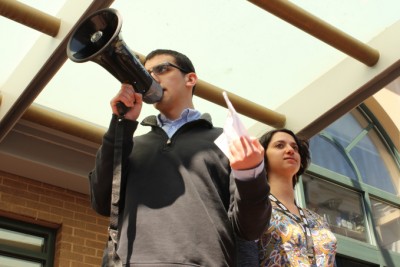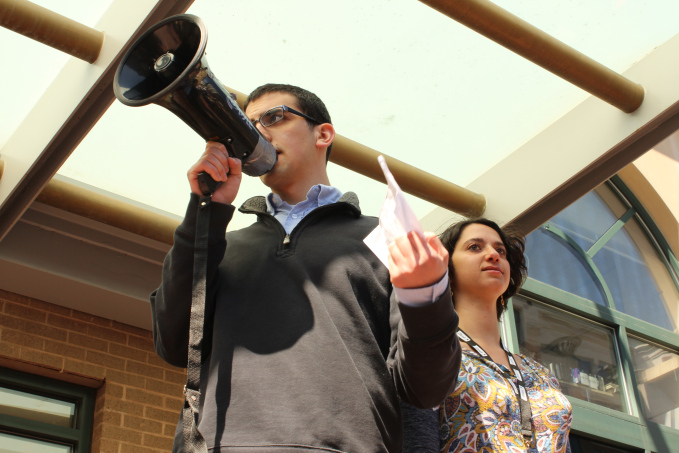
After reading my coverage of last week’s J Street Conference, a campus Hillel director reached out to me to confess their thoughts on Eric Fingerhut’s withdrawal from the conference and what the new Israeli government means for Hillel and its standards of partnership. To protect themselves and their Hillel, they would only let me publish our conversation under the condition of anonymity.
“I think Eric Fingerhut wanted to go to J Street, but he couldn’t because he knew that millions of dollars or his job would be on the line. I actually don’t know Eric personally and I haven’t interacted with him much, but I get the sense that it was certainly not his choice not to be there, and you can see that in how quickly he responded to the J Street U students after the march.
“After he withdrew, he went on a conference call with a bunch of Hillel directors telling us how important our support of our J Street students is, and he offered us money to cover our travel expenses if we would go to the conference with our students. We were not offered money before he withdrew, I can tell you that. So that shows he wanted to try to support and connect with them in another way since he couldn’t go to the conference. That’s also why Hillel had a booth there, they and Masa Israel Journeys were probably the most mainstream organizations tabling.
“There are a lot of Jews in America who understand what’s at stake in the need for two-states, just not enough of them are on the board at Hillel. As was mentioned at the conference, this is a problem across the Jewish world, but Hillel is bearing the brunt of it, I guess, because students are active and have the time and energy to want to change things.
“The Obama administration has it right, they know Prime Minister Netanyahu said what he meant before the election [about not supporting a Palestinian state on his watch] and they know the consequences of it. The Netanyahu administration doesn’t have a vision for the long-term. It seems to me—and I would be very interested if somebody does this— that you could make the argument that a representative of the next Israeli government shouldn’t be allowed to speak at Hillel because the Israeli government is now in violation of the standards of partnership in that, in rejecting the two-state solution, they are saying they don’t want a secure Israel and are undermining Israel as a democratic state. I don’t know if any Hillel has rejected a speaker for being too right-wing, but I would be curious to see if some Hillel director might do that.”
Will you be that Hillel director?
“Not today, probably not tomorrow. We’ll see.”
Derek M. Kwait graduated from the University of Pittsburgh and is editor in chief of New Voices.

